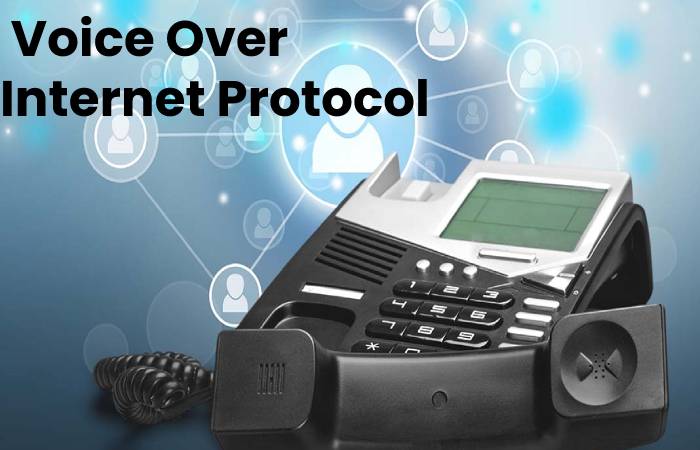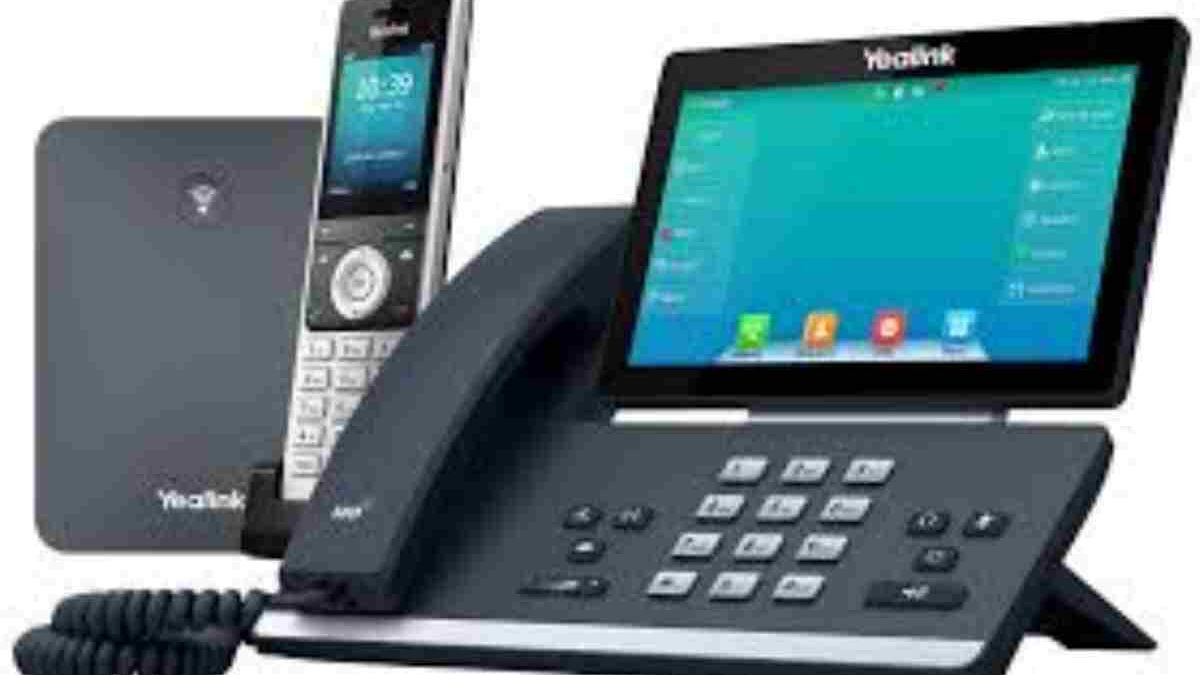Business Phone System: You are doing business in 2021 means adapting to technology trends and leaving unproductive practices behind. For example, if you are still using a pen and paper system, you may need to digitize your business. Also, if you want to expand your business to other regions or even other parts of the world, you may need to increase your online visibility. Do you still need a business telephone system with these strategies?
Before answering this question, you must first understand the different business phone systems and their advantages. It will give you an idea of whether or not you need to change your old system.
Table of Contents
The 3 Main Types Of Business Phone Systems
Business phone systems give large businesses and small and medium-sized businesses a better way to manage incoming and outgoing calls. Unlike residential phone systems, business phone systems can handle multiple phone calls simultaneously using a power dialer and other similar services included in cloud-based phone systems.
That said, the top three categories of business phone systems include VoIP, KSU, and PBX. All three can help your business, but they have different capabilities. Here are the main differences between the three:
1. Voice Over Internet Protocol

Voice over Internet Protocol (VoIP) is one of the latest advances in business telephone systems. VoIP enables customers to speak to company employees even though they are in two completely different countries. That’s because it can work through a computer or softphone and the Internet. So the main advantage of this system is that it is easily accessible from anywhere. The new VoIP technology also improves call efficiency better.
The great thing about platforms like Drop Cowboy and other VoIP service providers is that you can use them in marketing by sending voice messages to your target audience without ringing or bulk text messages. VoIP is also cloud-based. It means that no local installation is required as the service provider virtually hosts the entire system, which significantly reduces maintenance costs. Please see below for more information on its features and benefits.
2. Private Branch
Private Branch Exchange (PBX) is another type of business phone. This type uses programmable attendant devices that allow incoming calls to be routed automatically. PBX is significantly more advanced than its predecessor KSU. It is a great automated system that is best for companies with 40+ employees.
In addition, the PBX provides an uninterruptible power supply that businesses can use to keep work flowing during a time without power. However, a phone system does not use a data network, so your target range may be limited to your location. You can use it to make global calls, but this can incur considerable costs.
The third on this list is KSU, or Key System Unit, the simplest and most basic phone system of the three, so it’s only suitable for small businesses with a maximum of 40 phone providers. The good thing about KSU is that it is easy to use and comparable to an average home phone. KSU contains all the essential functions of a telephone system, but it lacks portability and flexibility.
Another modification of this telephone system is the KSU-less, which offers the same functions as the KSU version. The main difference is that KSU-less is portable as it contains no cables and no central switch unit. However, it does have some critical limitations.
In contrast to KSU, KSU-less only allows ten telephone providers. In addition, KSU-less is not sold in retail stores; You should go straight to the service provider and request a phone.
Entrepreneurs with smaller businesses and no aim of expanding the business might prefer this system. But it’s not for companies looking to grow in the future.
Advantages Of Business Phone Systems

All companies need good internal or external communication with customers or suppliers. Business thrives when communication between employees, customers, and other outside parties is excellent. Therefore, a cloud-based telephony solution like VoIP paves the way for better customer service and happier customers. With a professional phone system, you can stay one step ahead of your competitors. Therefore, the following list describes the most common benefits of having a business phone.
1. Advanced Features
The first great benefit of a business phone system is that it gives you access to valuable features that make your business more efficient. You can control essential customers and meetings and access personalized voicemails and caller IDs with a good business phone. Some of these features may seem unimportant, but they allow small businesses to get more done. Here are some of the features of business phone systems:
Centralized Device Management:
Conventional business telephone systems require a great deal of groundwork on the user’s part. It often involves cumbersome setup procedures. However, modern business phone systems are much easier to use; The developers have found a way to make the method more accessible for their clients to use. Most modern business phone systems have centralized device management portals that allow users to configure the system quickly.
Unified Communication Via Desktop, Mobile Phones, Or SMS:
Employees can easily communicate with colleagues or customers via the desired platform with a unified communication system. Employees can choose between desktop, mobile apps, or SMS platforms. And with many workforces moving to mobile operations, better communication and collaboration tools are needed to maintain the same competitive work ethic. Certain business telephones such as VoIP can be integrated into Microsoft Outlook or Office365 to make room for other existing systems. Because it’s cloud-based, employees who don’t show up for work can still make and receive calls and voice messages via email.
Record The Details And History Of The Call:
Call and activity logs are essential for generating detailed reports. Getting details like calls made, parking, hanging up, and many others can be pretty tedious. But organizations can now record calls for even better improvement simply by using a professional business phone system. VoIP can record your calls in the cloud so you can easily save and find them.
Automatic Participant:
Business phone systems offer an automated attendant feature that minimizes waiting times and dropped calls. With a computerized attendant, calls are immediately forwarded to the next available person in the appropriate department. Personalized greetings and other announcements or dialogue can be recorded and attached to the auto attendant. You no longer need to hire a traditional phone company to handle and route your incoming calls.
Call Transcription:
Many business phone systems offer voicemail or call transcription capabilities. In this way, recorded calls or voice messages can later be reviewed in text format by the operator. Another cool feature is converting recorded calls to a .wav file that can be downloaded or attached to an operator’s email. With this characteristic, you can easily see which calls you to need to review.
Conference Bridge:
Many organizations refuse to pay an additional fee for access to a conference bridge. Buying a conference bridge is also a hassle as all team members have to download an external third-party application. The great thing about VoIP is that you can seamlessly integrate conference bridges into the system itself. It is a much more effective and cost-effective solution as you no longer need any third-party applications to conduct conferencing.
2. Common Phone Lines
Traditionally, organizations using a non-phone system have had to terminate a line on someone’s phone so that another employee can access a specific phone line. Alternatively, companies that want to provide separate numbers to different employees must purchase a phone line and install a plug for each employee. The whole process is tedious and very expensive, something that not all companies can afford.
Using a business phone system through the cloud allows all employees to use a shared phone line. The telephone system provides access to any bar and assigns a specific extension to each employee without installing a connector or an extension for each person. Your customers or others trying to reach you no longer have to wait for the first caller to end the call.
Your business can still support customers over the phone using just one work phone number. As a result, you can reduce customers who may get impatient and angry while waiting for the lines to clear. The more you suit your customers, the more likely they will continue doing business with you.
3. Low Cost Per Call
Because modern business phone systems use the Internet and cloud-based servers to make and receive calls, the cost of each call is significantly lower. In contrast to traditional telephone lines, modern telephone systems convert data into packets sent over the IP network. Your company’s IP network could be the same Internet connection that you are using. It can also be the IP network provided by your service provider. The good thing is that your phone provider guarantees the quality of service.
It is where the Internet comes in. A single call is placed on a single line with traditional telephone lines. Landline calls, especially long distance calls, are expensive because of the large number of lines that need to be installed. Internet-based calls solve this problem, which reduces the cost of calls. Calls with modern business telephones such as VoIP are cheaper or sometimes even free of charge, regardless of the distance between caller and recipient.
4. Customer loyalty
You can take advantage of the advanced features mentioned above to provide ongoing customer support. As mentioned above, customers who are happy with your customer support are more likely to come back and refer your business to others. You can also bolster this with a cloud-based business phone system to project a professional image. Especially if you don’t have enough resources but have a lot of customer support tasks, using VoIP can help.
Even if you have a small business, for example, an automated assistant can help you get an idea that you have more departments. As a result, your customers will perceive your company as a large company with efficient operations.
Also, keep in mind that your customers are more diverse today. Some can use their laptops while others use their smartphone to call a business. Regardless of the platform used, you can meet your customers’ needs, as VoIP has a multitude of communication channels. It includes a contact form and live chat that you can use to target your website visitors. As a result, you can make the customer experience more satisfying.
If you focus on your customer service, you can get more repeat customers because they already know how to communicate.
5. Flexibility
Most importantly, you can take your business anywhere with a business telephone system. You don’t have to worry about lost a call when you are out of the office, especially if you love to travel. Since you can use a cloud-based telephone system, you only need the Internet to stay connected with your employees and customers. They can reach you on a single phone number wherever you are.
These systems also allow you to hire employees from all over the world. You can still communicate with them using the conferencing tools found on most business phone systems. And you can do it anytime, too. The accessibility of these features depends on the Internet connection you are using.
Plus, you don’t have to change your work phone when you move your business. For example, you might initially be based in New York and moving to California. Traditionally, you have had to change your work phone number to the movie state.
However, you can use a virtual phone number from anywhere with a cloud-based phone system. It is essential because changing a phone number can affect your ability to respond to existing customers. Customers may already know your current phone number. Some may lose touch with you if you change it, especially if you don’t inform them that you have new contact information.
You can avoid losing your current customers by holding back your existing phone number.
conclusion
Despite the advantages above, is it still worth having a business phone system in 2021? If you are looking to streamline your business operations and build a professional image, this is what to consider. Additionally, a business phone system is critical to expanding your business. These systems allow you to communicate with your customers, employees, and partners wherever you are.

